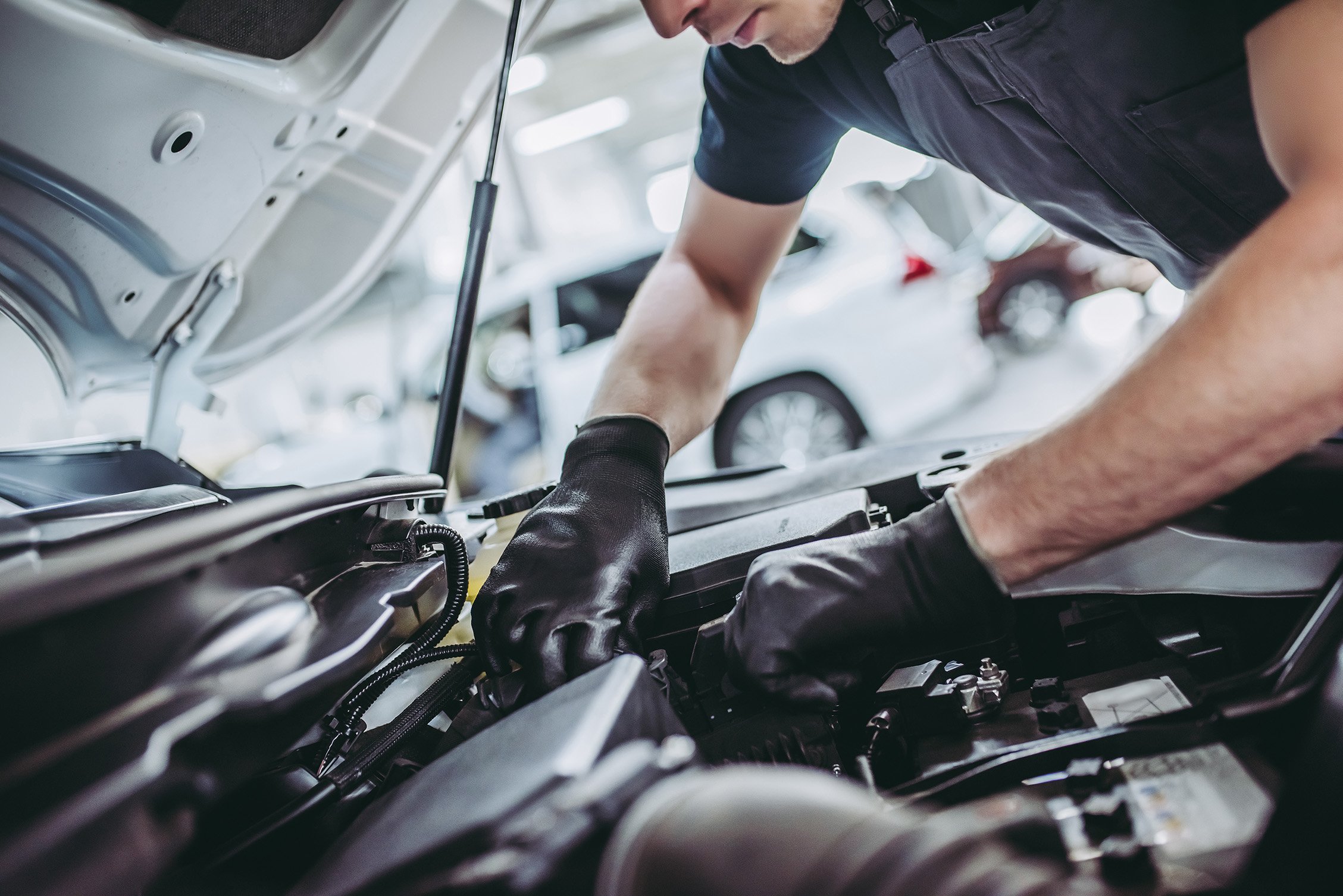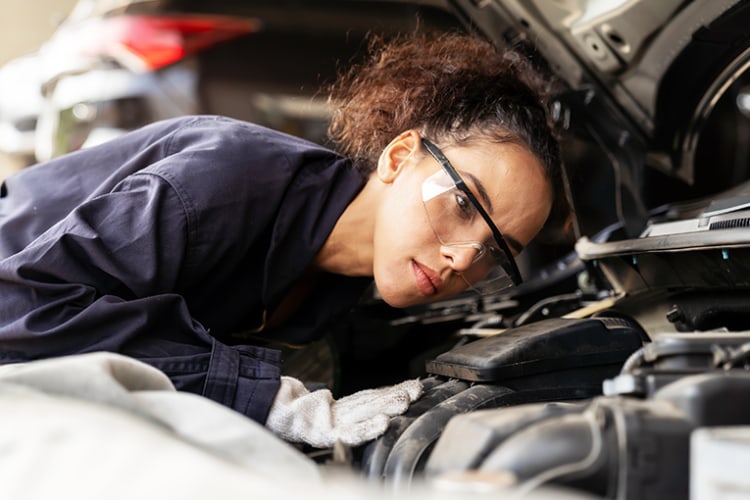All Categories
Featured
A cars and truck overheating can be a demanding circumstance, specifically if it occurs suddenly. High engine temperatures can lead to severe damages if not dealt with quickly. Understanding what to do when your vehicle overheats and comprehending just how to avoid it can save you from pricey repairs and guarantee your safety when driving.
![]()
If Your Car Overheats,What to Do. Draw Over Securely. As soon as you notice indications of getting too hot-- such as vapor rising from the hood, an increasing temperature scale, or alerting lights-- pull over to a risk-free location. Transform off the engine immediately to stop additional damage.
Transform Off the a/c and Transform On the Heating unit. If you're incapable to draw over right now, turn off the cooling to minimize engine load and activate the heating unit. This reroutes heat far from the engine and right into the cabin, which can aid reduce the engine temperature temporarily.
Open the Hood (with Care) Await the engine to cool before opening up the hood. Opening it as well soon can reveal you to scalding vapor or warm fluids. Once it's risk-free, check the engine for apparent signs of problem, such as dripping coolant or a busted radiator hose.
Check the Coolant Levels. If you have coolant or water in your car, include it to the tank or radiator as soon as the engine has cooled. Stay clear of including cold water to a hot radiator, as it can trigger splitting.
![]()
Require Aid. Speak to a tow vehicle or roadside assistance if you're not able to identify or resolve the concern. Driving with an overheated engine can bring about considerable damages, such as a blown head gasket or deformed engine parts.
Exactly How to avoid Your Automobile from Overheating. Examine Coolant Degrees On A Regular Basis. Ensure your automobile constantly has the proper quantity of coolant. Reduced coolant levels are one of the most usual sources of overheating. Consistently evaluate the coolant tank and leading it off if required.
Inspect Radiator and Hose Pipes. Seek splits, leaks, or loose connections in the radiator and pipes. Replace any damaged components quickly to stop coolant leakages.
Maintain Your Cooling System. Flush and re-fill the cooling system as suggested in your vehicle's owner guidebook. With time, old coolant can lose its performance and fail to secure the engine from overheating.
Screen the Thermostat and Water Pump. A malfunctioning thermostat or water pump can interfere with the air conditioning system's feature. Have actually these parts checked throughout regular maintenance to catch concerns early.
Prevent Straining Your Lorry. Too much weight places additional stress on the engine and air conditioning system. Maintain your tons within the maker's suggested restrictions.
See the Temperature Level Scale. Pay attention to your temperature level scale, particularly throughout hot weather or when increasing steep slopes. If the scale begins to climb up, take safety measures such as reducing speed or shutting off the air conditioner.
Verdict. Performing swiftly and securely can protect against more damages to your engine. With appropriate treatment, you can keep your engine running efficiently and avoid the inconvenience of an overheated car.

If Your Car Overheats,What to Do. Draw Over Securely. As soon as you notice indications of getting too hot-- such as vapor rising from the hood, an increasing temperature scale, or alerting lights-- pull over to a risk-free location. Transform off the engine immediately to stop additional damage.
Transform Off the a/c and Transform On the Heating unit. If you're incapable to draw over right now, turn off the cooling to minimize engine load and activate the heating unit. This reroutes heat far from the engine and right into the cabin, which can aid reduce the engine temperature temporarily.
Open the Hood (with Care) Await the engine to cool before opening up the hood. Opening it as well soon can reveal you to scalding vapor or warm fluids. Once it's risk-free, check the engine for apparent signs of problem, such as dripping coolant or a busted radiator hose.
Check the Coolant Levels. If you have coolant or water in your car, include it to the tank or radiator as soon as the engine has cooled. Stay clear of including cold water to a hot radiator, as it can trigger splitting.

Require Aid. Speak to a tow vehicle or roadside assistance if you're not able to identify or resolve the concern. Driving with an overheated engine can bring about considerable damages, such as a blown head gasket or deformed engine parts.
Exactly How to avoid Your Automobile from Overheating. Examine Coolant Degrees On A Regular Basis. Ensure your automobile constantly has the proper quantity of coolant. Reduced coolant levels are one of the most usual sources of overheating. Consistently evaluate the coolant tank and leading it off if required.
Inspect Radiator and Hose Pipes. Seek splits, leaks, or loose connections in the radiator and pipes. Replace any damaged components quickly to stop coolant leakages.
Maintain Your Cooling System. Flush and re-fill the cooling system as suggested in your vehicle's owner guidebook. With time, old coolant can lose its performance and fail to secure the engine from overheating.
Screen the Thermostat and Water Pump. A malfunctioning thermostat or water pump can interfere with the air conditioning system's feature. Have actually these parts checked throughout regular maintenance to catch concerns early.
Prevent Straining Your Lorry. Too much weight places additional stress on the engine and air conditioning system. Maintain your tons within the maker's suggested restrictions.
See the Temperature Level Scale. Pay attention to your temperature level scale, particularly throughout hot weather or when increasing steep slopes. If the scale begins to climb up, take safety measures such as reducing speed or shutting off the air conditioner.
Verdict. Performing swiftly and securely can protect against more damages to your engine. With appropriate treatment, you can keep your engine running efficiently and avoid the inconvenience of an overheated car.
Latest Posts
Fast & Reliable Auto Repairs - Fix Your Car with Montclare Auto Repair Today
Published Apr 21, 25
2 min read
Top-Quality Auto Repair Close to You - Trust Montclare’s Auto Specialists
Published Apr 21, 25
2 min read
Commercial Roofing Providers by Weathercraft Firms
Published Apr 21, 25
1 min read
More
Latest Posts
Fast & Reliable Auto Repairs - Fix Your Car with Montclare Auto Repair Today
Published Apr 21, 25
2 min read
Top-Quality Auto Repair Close to You - Trust Montclare’s Auto Specialists
Published Apr 21, 25
2 min read
Commercial Roofing Providers by Weathercraft Firms
Published Apr 21, 25
1 min read